One year ago, the police killing of George Floyd launched the United States into yet another round of heated conversations about the role of policing and whether police reform is necessary. Calls to “defund the police” have become widespread.
At the heart of this conversation is whether police officers are well-suited to improve public safety. Does spending money on police actually make us safer? Or could spending that money on other social services—such as housing, health care, and education—do more good with less harm? On the other hand, perhaps we could reform policing to increase communities’ trust in law enforcement, thereby making police officers more effective. After all, police need communities’ cooperation in order to do their jobs well.
We recently polled the new Criminal Justice Expert Panel (CJEP) on this topic. Many questions swirling in this and other areas of criminal justice policy are empirical questions—they have an answer, even if we aren’t sure what it is yet. This makes the expert opinions of trusted social scientists—informed by decades of rigorous, empirical research—relevant to the conversation. What we do with their answers is of course up to us. But it would at least be helpful to ground our debates in a common set of facts.
The CJEP consists of respected scholars working on issues related to crime and justice. They span multiple academic disciplines and countries. What they have in common is that they have dedicated their careers to figuring out what works to make our criminal justice system more fair and effective. Our goal in establishing the CJEP is to make their knowledge and insights more accessible to policymakers, practitioners, and concerned citizens.
In the first CJEP survey, we provided three statements related to policing and public safety, and asked our panelists to rate their level of agreement on a five-point scale from strongly disagree to strongly agree. We also asked our panelists to rate their level of confidence in their response, from 0 (not at all confident) to 10 (very confident). This allows us to aggregate their responses as raw averages across all panelists, and as weighted averages that give more weight to the responses of panelists who were more confident—perhaps because this topic is firmly in their area of expertise and they know the research literature well.
The results are below. You can also explore individual panelists’ responses on the CJEP website. And stay tuned for future surveys! On the website, you can sign up for the CJEP newsletter to be the first to hear about new survey results. You can also follow the CJEP on Twitter.
Criminal Justice Expert Panel Survey Results: Policing and Public Safety
Statement 1: Increasing police budgets will improve public safety.
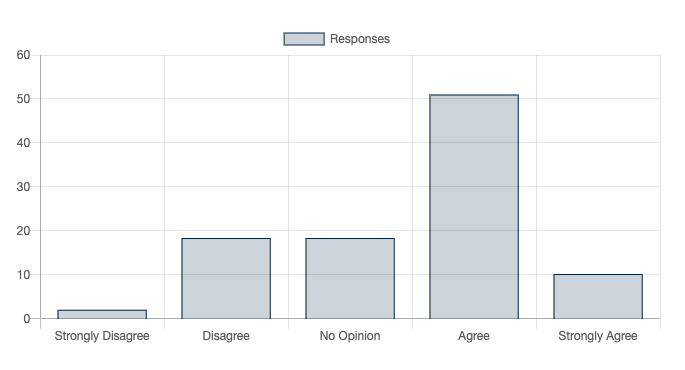
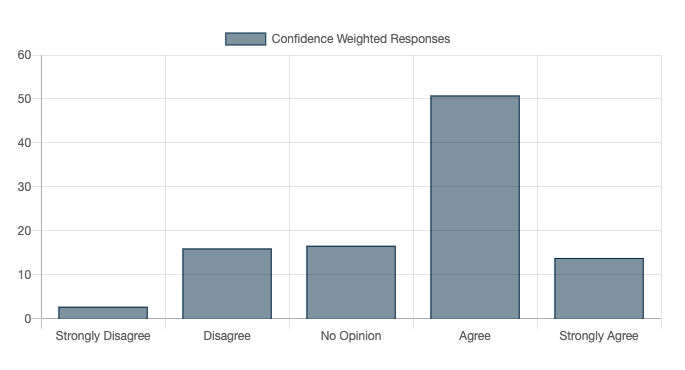
Selected panelist comments (edited lightly to correct typos):
“This is a settled issue. More police equal less crime. There is also research showing proactive policing reduces crime in the short run.” — Shawn Bushway (RAND Corporation)
“If funds are used to build community trust or improve police performance (not measured by clearance rates).” — Jamein Cunningham (University of Memphis)
“Potentially offsetting effects here: increased police budgets reduce homicides and index crime arrests, but increase arrests for minor offenses (Chalfin et al 2021); prosecuting those minor misdemeanor offenses may harm public safety (Agan et al 2021).” — Anna Harvey (New York University)
“The question is vague. Increasing budgets could simply provide pay raises, pension benefits, or equipment. If increasing budgets meant hiring more police then I would strongly agree with the statement.” — John Macdonald (University of Pennsylvania)
“Police management competence is the limiting factor.” — Peter Reuter (University of Maryland)
Statement 2: Increasing social service budgets (e.g. housing, health, education) will improve public safety.
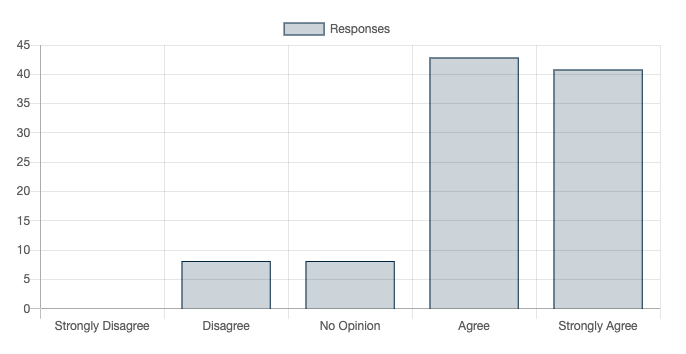
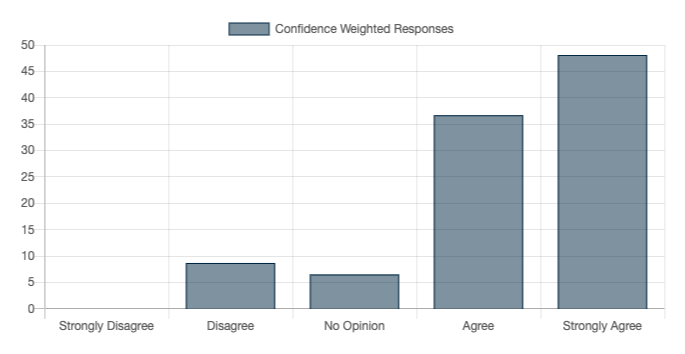
Selected panelist comments (edited lightly to correct typos):
“Depends on the take-up rate. Housing can agglomerate potentially violent people who would be less likely to act violently had they not been in close proximity to each other. Health (especially mental health), I think would be beneficial for decreasing crime, conditional on take-up.” — Monica Deza (City University of New York)
“My hunch (based on existing research) is that we dramatically underinvest in such programs from a public safety perspective. But not all programs are effective, so we still have a lot of work to do to figure out exactly which programs should get more funding and how to scale them.” — Jennifer Doleac (Texas A&M University)
“Much depends on the service infrastructure and needs in the jurisdiction as well as how the funds will be spent. There is also a timing issue here; some of these investments could take much longer to improve public safety.” — Beau Kilmer (RAND Corporation)
“In the short-term (6 months to 2 years), increasing social service budgets will be unlikely to increase public safety based on conventional metrics. In the long-term (5-10 years), such non-targeted investments could produce modest improvements.” — Charles Loeffler (University of Pennsylvania)
“We have good evidence that SOME forms of social services can reduce the sorts of crime that drive social harms (violence in particular). But the public conversation right now treats all social services as being equivalent in their violence-prevention impacts, which (together with the inevitable big-city politics) creates questions about what sorts of services would actually get funded in practice.” — Jens Ludwig (University of Chicago)
Statement 3: Increasing accountability for police misconduct will improve public safety.
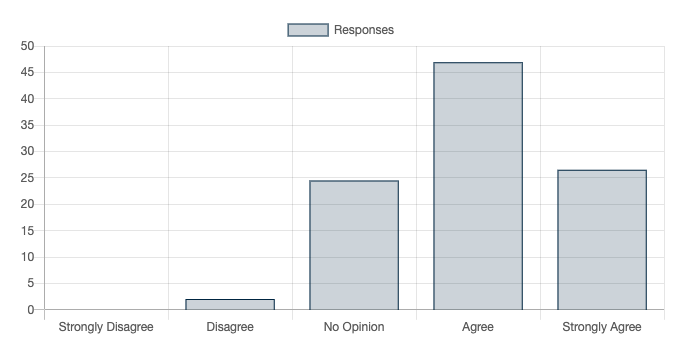
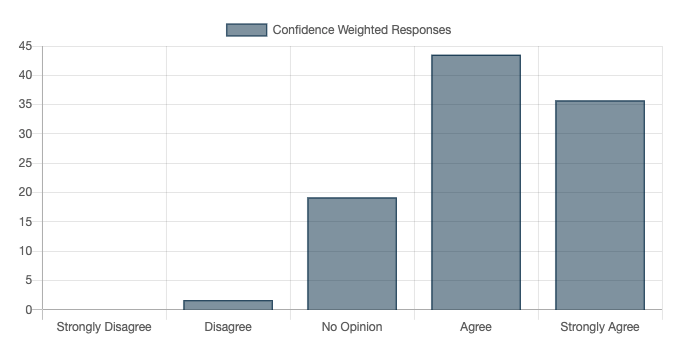
Selected panelist comments (edited lightly to correct typos):
“We do not have a lot of evidence on accountability yet: mixed evidence from police unions (Dharmapala et al 2018; Goncalves 2021); accountability for discrimination through affirmative action decreases victimization (Harvey and Mattia 2019). More accountability should decrease misconduct, could improve police-community relationships. Seems important regardless.” — Amanda Agan (Rutgers University)
“I don’t think there is any solid evidence one way or the other. Although if greater accountability leads law enforcement agencies to respond like children and withdraw services from communities which need them, one could argue it could worsen public safety.” — Robert Apel (Rutgers University)
“Again, depends. Some communities get public safety, while others social control. There should be some public safety costs to crimes committed by police. However, there may also be a concern about behavioral responses to accountability by police officers.” — Robynn Cox (University of Southern California)
“Police accountability is valuable in itself, separate from its impact on public safety. There is limited empirical evidence that accountability improves public safety, including police force. Importantly, there is also little evidence that improved accountability *worsens* public safety by constraining police.” — Felipe Goncalves (UCLA)
“Again, I think you have to define public safety broadly. The police using unnecessary violence, or injuring community solidarity reduces public safety. At the same time, I think there is evidence that when people trust the police they will cooperate more with the police. This will improve public safety as well.” — David Weisburd (George Mason University)